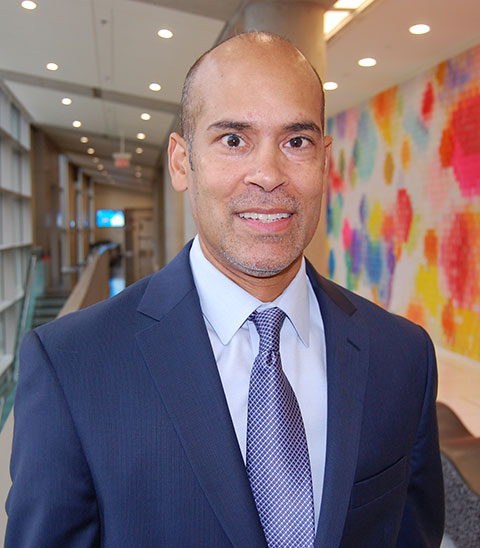Chad P. Nelson, PhD, MSPH, Toxicologist
"FDA promotes a rich regulatory science culture and a working environment where the expectations of me are clear, communication with peers and leadership is dynamic and productive, and where I see that what I do has a profound impact on the lives of Americans."
Q: What opportunities does FDA offer you that you couldn’t get elsewhere?
I believe the collective scientific expertise at FDA is the best in the world! It spans an enormous breath of disciplines—from immunology, pharmacology, toxicology, analytical chemistry, microbiology, biochemistry and veterinary medicine to biomedical engineering, nursing and medical sciences, and epidemiology. Working in the FDA environment offers a host of synergistic opportunities—both within and across these areas.
I’ve also had the chance to work closely with colleagues in other Federal organizations like the U.S. Department of Agriculture, the Centers for Disease Control and Prevention, and the Defense Advance Research Projects Agency, as well as industry, academia, and other non-governmental organizations. Together, we work on common challenges to ensure the safety of our nation’s food supply and to address other aspects of FDA’s public health mission.
As part of my work within FDA’s Center for Food Safety and Applied Nutrition (CFSAN), I liaise with one of our partner academic institutions, known as Centers of Excellence. FDA leverages these Centers to spur new knowledge, foster research dialog among government, academia, and industry, and develop novel models for solving problems associated with complex scientific, public health, and consumer protection challenges.
One FDA goal is to improve food safety for all consumers, domestically and internationally, through education and training. Enhanced training is a key requirement of the FDA Food Safety Modernization Act. Since a major portion of the food consumed in the U.S. is imported, it’s critical that international suppliers be trained in the same food safety practices used in the U.S. This proactive, preventive approach is essential because a very small portion of imported food is actually inspected at the U.S. ports of entry. Through our Center of Excellence, FDA and various U.S. government agencies work together with input from industry, consumer groups, and foreign government agencies to develop and deliver science-based food safety training in countries worldwide.
Q: Why do scientists like you stay at FDA?
Because FDA is simply a unique and great place to work. FDA promotes a rich regulatory science culture and a working environment where the expectations of me are clear, communication with peers and leadership is dynamic and productive, and where I see that what I do has a profound impact on the lives of Americans. I love being a part of that!
Q: How do you use your science degree at FDA?
Well, actually, I have three science degrees—a BS in biology, an MS in Public Health, and a PhD in toxicology—and I use them in what I do daily. Even though I’m no longer a “bench” scientist, because FDA is a science-based Agency it means that scientists like me must know what goes into developing a robust and integrated research program.
My first job at FDA was as a toxicology reviewer, evaluating submissions from industry for compliance with FDA safety regulations. I then moved on to a more policy-level position that exposed me to a broader perspective of interactions across FDA and with a variety of external stakeholders, from industry and academia to consumer advocacy. One of my office’s big achievements at the time was creating a standing committee of scientific leaders across FDA to foster communication, collaboration, and high-level strategic planning and prioritization of research and other regulatory science-related activities. My firm scientific foundation has put me in a strong position for what I’ve helped to accomplish so far, and this will no doubt lead to continued successes in the future.
Q: How is science conducted at FDA unique from science conducted at the National Institutes of Health, academia, or industry?
I currently work in CFSAN, which promotes and protects the public health by ensuring that the nation’s food supply is safe, sanitary, wholesome, and honestly labeled, and that cosmetic products are safe and properly labeled.
CFSAN invests significant resources in regulatory-based scientific research—everything from measurement and analysis and method development to social and behavioral science and monitoring programs. Unlike science conducted at the National Institutes of Health or academia, which can be more fundamental in understanding the nature and behavior of living systems, research at CFSAN is directed toward FDA’s public health and regulatory mission and is aimed at increasing the understanding of the underlying factors and variables that may contribute to or pose a risk to human safety and health. Although viewed from a different perspective, industry uses scientific knowledge, either generated on their own or gained from the public dissemination of FDA’s research findings, to comply with the law, with both parties having an ultimate goal of ensuring safe products for the consumer.

